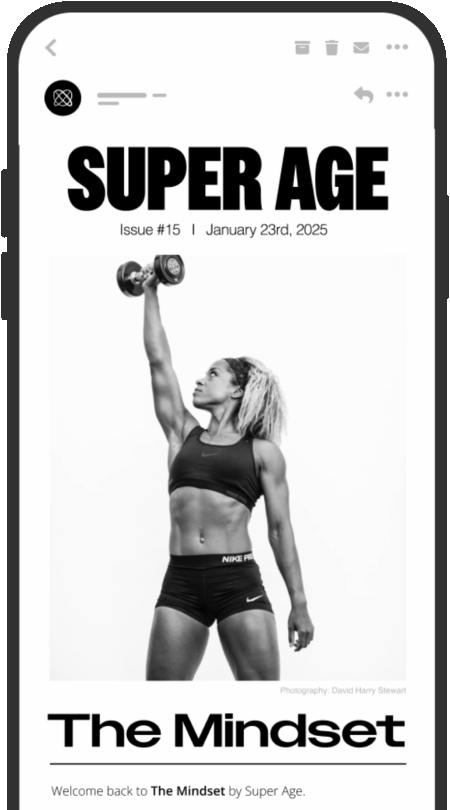The 15-Minute Walk That Extends Your Life

You can lower your risk of early death, improve [hahrt helth]nounThe overall condition and function of the cardiovascular system, including blood pressure, cholesterol, and arterial health; critical for longevity and disease prevention.Learn More, and potentially extend your lifespan… by walking.
Walking has always been a cornerstone of a healthy life. Research backs it up: logging around 8,000 steps a day can lower your risk of dying from all of the major diseases. Pile on decades of studies showing it lowers blood pressure, steadies blood sugar, and even lifts your mood. No wonder the American Heart Association and World Health Organization keep telling us to “just walk.” It’s the original [lon-jev-i-tee]nounLiving a long life; influenced by genetics, environment, and lifestyle.Learn More hack.
Now, researchers are suggesting that how you walk may matter more than how long.
A recent study published in Annals of Epidemiology followed nearly 80,000 adults across 12 southern U.S. states for more than 16 years. Researchers wanted to know: does walking pace affect longevity? The findings were striking:
- Fast walking just 15 minutes a day lowered the risk of early death by nearly 20%.
- Slow walking for hours showed little benefit, only about a 4% risk reduction.
- The greatest protection was against cardiovascular deaths, particularly heart attack and stroke.
- The benefits were strongest among those with existing health conditions, though everyone gained.
Why Walking Pace Matters for Longevity
Brisk walking challenges your cardiovascular system in ways casual strolling does not. It improves [bluhd floh]nounThe movement of blood through the circulatory system, delivering oxygen and nutrients to organs and tissues to support energy, healing, and overall health.Learn More, strengthens the heart’s efficiency, and regulates blood pressure and glucose. Even if you never set foot in a gym, moving at a faster clip rewires your physiology toward [ri-zil-yuhns]nounThe ability to recover quickly from stress or setbacks.Learn More.
Even more compelling: the benefits of fast walking worked independently of other exercise. Whether or not people lifted weights or went jogging, the daily brisk walk still delivered protection.
“Brisk walking offers a convenient, accessible, and low-impact activity that individuals of all ages and fitness levels can use to improve general health and cardiovascular health specifically,” says study author Wei Zheng, MD, PhD, MPH, the Anne Potter Wilson Professor of Medicine and director of the Vanderbilt Epidemiology Center.
The fact that something as simple as brisk walking can meaningfully extend life is powerful. It shows that longevity science is for everyone with a sidewalk, a safe block, or even a hallway to walk through.
Here’s How to Walk at the Pace That Extends [helth-span]nounThe number of years you live in good health, free from chronic illness or disability.Learn More
- Find your “brisk” pace: It’s the pace that makes conversation a little harder but still possible. If you’re tracking, aim for 50–70% of your max heart rate.
- Start with 15 minutes. The study showed benefits at that threshold. Work toward 30 minutes if you can.
- Layer it into your day. Power walk between meetings, take stairs two at a time, or speed up evening strolls.
- If fast isn’t possible, go long. Slow walking for an hour or more still showed benefits for heart health, especially ischemic [hahrt dih-zeez]nounConditions affecting heart health and circulation.Learn More.
Longevity isn’t reserved for those with access to cutting-edge treatments or boutique fitness studios. Sometimes it’s as simple as how you move through your day. Fast walking, even for 15 minutes, can shift your physiology toward resilience and longevity.
Your assignment for the week? Choose one walk and speed it up. Not a marathon, not even a mile. Just a daily practice of moving with intention. Your heart, and your future self, will thank you. Write and tell us about your favorite walking routine!
Read This Next
The information provided in this article is for educational and informational purposes only and is not intended as health, medical, or financial advice. Do not use this information to diagnose or treat any health condition. Always consult a qualified healthcare provider regarding any questions you may have about a medical condition or health objectives. Read our disclaimers.


